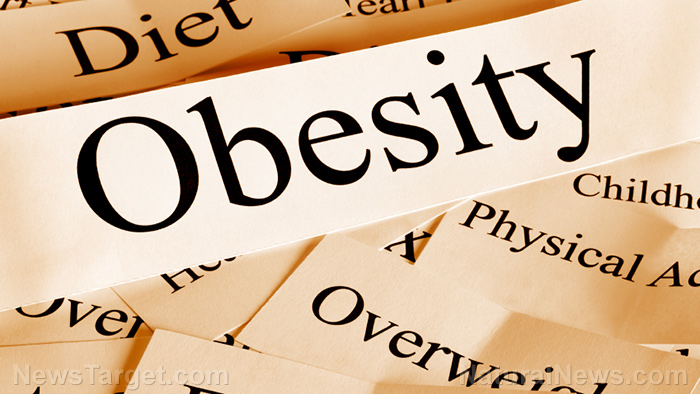New analysis finds that most yogurts contain excessive amounts of sugar
01/24/2019 / By Michelle Simmons

Yogurt is perceived to be healthy because it is a good source of good bacteria and nutrients, such as protein, calcium, iodine, and vitamin B. However, a recent analysis of the nutrient content of available U.K. supermarket yogurt products, published in the online journal BMJ Open, revealed that these may contain excessive amounts of sugar.
Carried out by researchers at the University of Leeds and the University of Surrey in the U.K., the analysis revealed that most types of yogurt sold in supermarkets contain too much sugar – exceeding the recommended threshold. Apparently, even organic varieties, which are often viewed as “healthier” options, contain some of the highest average sugar content – which is at 13.1 grams (g) per 100 g.
In the analysis, the researchers aimed to determine how far yogurt products, particularly those marketed to children, meet the U.K. and U.S. dietary guidelines. To do this, they evaluated the nutrient content of nearly 900 yogurts and yogurt products, which were found from five major U.K. online supermarket chains in October/November 2016. The products were placed into eight categories: children’s, which included fromage frais; dairy alternatives, such as soy; desserts; drinks; flavored; fruit; natural or Greek; and organic. (Related: Is yogurt the new junk food? Some yogurts have more sugar than a Twinkie.)
The results of the analysis showed that while the sugar contents varied widely across categories, the average sugar content of products in all the categories exceeds the low sugar threshold, except natural or Greek yogurts. Fewer than one in 10 qualified as low sugar, and almost none of which were in the children’s category.
According to European Union regulations, 3 g of fat per 100g or less or 1.5 g or less for drinks; and a maximum of 5 g of total sugars per 100 g are classified as low fat and low sugar.
As expected, desserts had the highest total sugar content, averaging 16.4 g per 100 g, and fat content, at an average of 5.2 g per 100 g. Products in the children’s, flavored, fruit, and organic categories followed after. In these categories, total average sugars ranged from 10.8 g per 100 g in children’s products to 13.1 g per 100 g in organic products. Only two out of 101 children’s yogurt and fromage frais products surveyed qualified as low sugar, containing 5 or less than 5 g per 100 g.
These results raise concern, especially as childhood obesity and the prevalence of teeth decay among young children continue to rise. The researchers also say that yogurt, which is perceived as healthy food, may be an “unrecognized” source of dietary sugar, especially for young children who consume a lot of it. In the U.K., children up to three years old eat more yogurt than any other age group.
With these findings, the researchers concluded that not all yogurts are as healthy as perceived. They also suggested that a reduction of free sugars in these products is needed.
Tips on buying yogurt
In addition to yogurt’s sugar content, there are other factors to consider when buying yogurt and yogurt products to ensure that it is healthy. Here are some rules to remember in choosing the best and healthiest yogurt for you:
- Avoid “heat-treated” or pasteurized: Pasteurization kills the live cultures and their health benefits in yogurt products.
- Check the calcium content: Choose yogurt that contains 35 to 40 percent calcium in an 8-ounce container.
- Check the protein content: A 6-ounce serving of Greek yogurt contains 15 to 20 g of protein, while the same serving of regular yogurt contains just nine grams.
- Choose yogurt with fewer ingredients: Nutrition experts say that only a few key ingredients are needed to make yogurt healthy: milk and two live bacterial cultures. Avoid yogurt products that have a long list of ingredients, such as added sugars (high fructose corn syrup), corn starches, and any ingredient you can hardly pronounce.
Learn more about the health benefits of yogurt by going to Yogurt.news.
Sources include:
Submit a correction >>
Tagged Under:
added sugars, grocery, probiotics, sugar, sugar content, sweeteners, yogurt
This article may contain statements that reflect the opinion of the author
RECENT NEWS & ARTICLES
COPYRIGHT © 2017 FIGHTOBESITY.NEWS
All content posted on this site is protected under Free Speech. FightObesity.news is not responsible for content written by contributing authors. The information on this site is provided for educational and entertainment purposes only. It is not intended as a substitute for professional advice of any kind. FightObesity.news assumes no responsibility for the use or misuse of this material. All trademarks, registered trademarks and service marks mentioned on this site are the property of their respective owners.





















